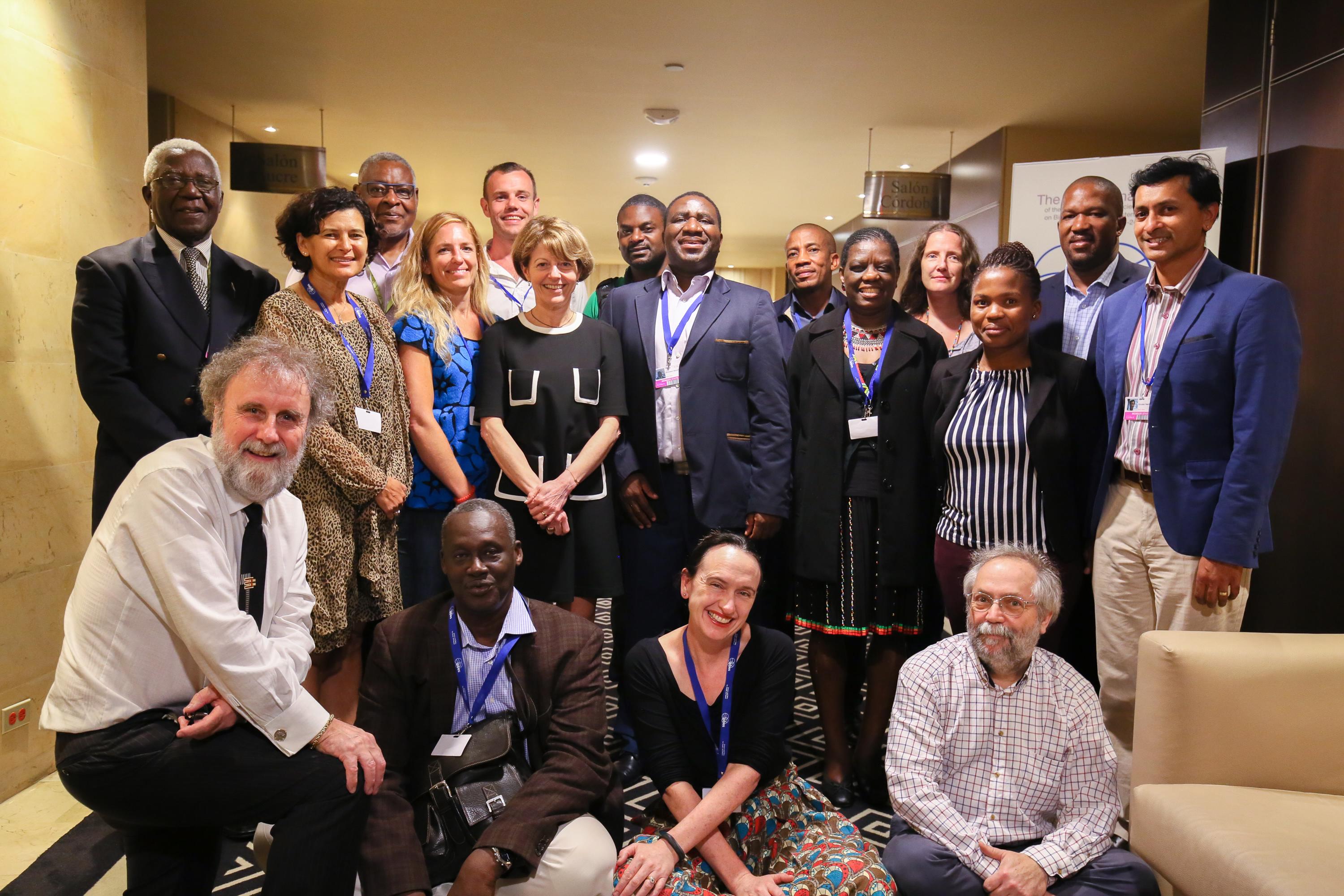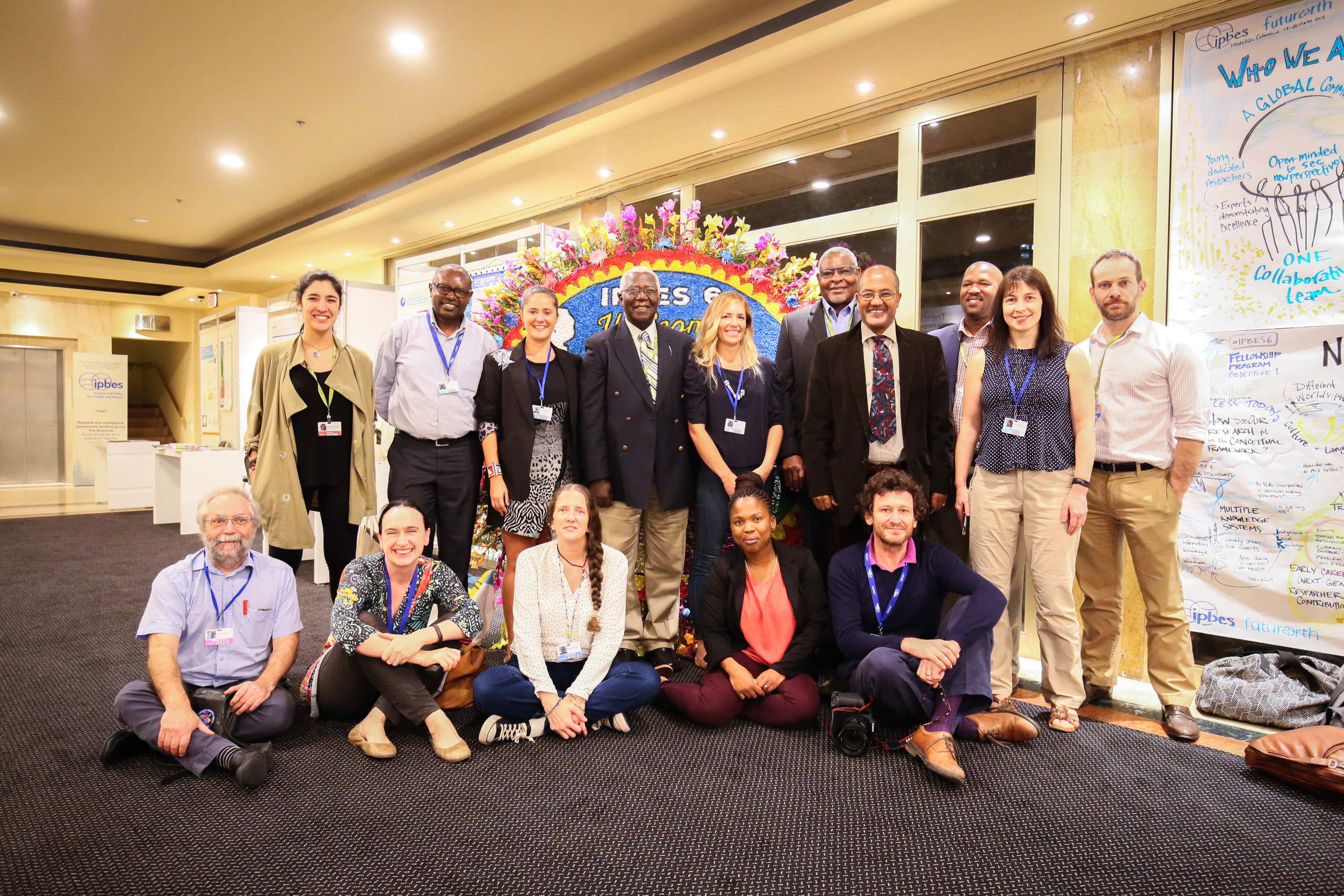The world’s first comprehensive, evidence-based regional assessment of biodiversity and ecosystem services for Africa compiled by over 100 leading experts, including CSIR biodiversity experts, across 45 countries was approved by the governments of 129 member nations. The Africa regional assessment was approved during the sixth session of the Intergovernmental Science-Policy Platform on Biodiversity and Ecosystem Services (IPBES) in Colombia, in March 2018.
The objective of the IPBES, which was established in 2012, is to strengthen the science-policy interface for biodiversity and ecosystem services for the conservation and sustainable use of biodiversity, long-term human wellbeing and sustainable development.
“Africa’s immense natural resources and its diverse cultural heritage are amongst its most important strategic assets for both human development and well-being,” says CSIR chief scientist, Dr Emma Archer. Archer co-chairs the African Assessment along with former CSIR scientist, Dr Luthando Dziba, who joined the South African National Parks in 2017, and Prof Kalemani Joseph Mulongoy of the Democratic Republic of the Congo. Dr Archer says, “Africa is the last place on earth with a wide range of large mammals, yet today there are more African plants, fish, amphibians, reptiles, birds and large mammals threatened than ever before by a range of both human-induced and natural causes”.

the launch event in Colombia.
The African Assessment report is one of four regional assessments of biodiversity and ecosystem services. The other three assessments cover the Americas, Asia and the Pacific as well as Europe and Central Asia, thereby covering the entire planet, except the poles and the open oceans. The assessment reports point to a decline in biodiversity in every region of the world, thus significantly reducing nature’s capacity to contribute to human wellbeing.
According to the Summary for Policymakers of the IPBES African Assessment, biodiversity and nature’s capacity to contribute to people are being degraded, decreased and lost due to a number of common pressures, including climate change, overexploitation and the unsustainable use of natural resources and habitat stress, among others.
However, measures taken by African governments to protect biodiversity and nature’s contributions to people have contributed to some recovery of threatened species, especially in key biodiversity areas and these efforts could be enhanced. Such measures include the establishment and effective management of protected areas and networks of wildlife corridors, as well as the reintroduction of wildlife, among others.

“One of the most important findings across the four IPBES regional assessments is that failure to prioritise policies and actions to stop and reverse biodiversity loss and the continued degradation of nature’s contributions to people seriously jeopardises the chances of every region, and almost every country, meeting their global development targets,” warns Executive Secretary of IPBES, Dr Anne Larigauderie. The African Assessment provides five plausible future scenarios; under three of these it is considered unlikely to achieve the African Union’s Agenda 2063, the Sustainable Development Goals and the Aichi Biodiversity Targets.
The CSIR’s role in the IPBES
The CSIR, as the host of the IPBES Technical Support Unit for the African Assessment, has been instrumental in the development of the region’s reports. The CSIR has hosted a series of writing workshops for authors to draft the African Assessment. These include the first authors’ meeting which it hosted in Pretoria, in 2015. South Africa’s hosting of the series of meetings emphasises the commitment of the country, as a member state, to building the IPBES as a leading intergovernmental body for assessing the state of the planet’s biodiversity, its ecosystems and the essential services they provide to society. The South African government, through the Department of Environmental Affairs, is committed to evidence-based decision-making through strengthening the science policy interface, as is evidenced by its support of the Technical Support Unit.
marking the CSIR and South Africa’s significant role
in the development of these landmark reports.
CSIR experts who were involved in the development of these landmark reports include:
- Dr Emma Archer: Chief scientist
- Dr Anicia Maoela: Researcher
- Dr Graham von Maltitz: Research group leader: Global Change and Ecosystem Dynamics
- Ms Michele Walters: Senior researcher
- Dr Ryan Blanchard: Senior researcher
- Dr Benis Egoh: Principal researcher
- Dr Nadia Sitas: Senior researcher
- Dr Phumza Ntshotsho: Principal researcher
- Dr Patrick O’Farrell: Research group leader: Biodiversity and Ecosystem Services
- Dr Odi Selomane: Researcher
The authors of the African Assessment emphasise the need for better integration of indigenous knowledge, as well as greater use of scenarios in African decision-making.
For more information contact:
Dr Emma Archer
Email: @email
https://www.csir.co.za/dr-emma-archer
Contact Person: Dr Emma Archer, @email,